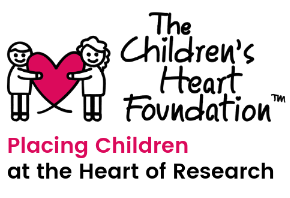
With the help of our generous supporters, The Children's Heart Foundation has funded nearly $20 million of CHD research and scientific collaborations.
View all of our funded research below. Use the search tool to filter by Doctor's Name, Project Name, Hospital/Institution, or Year funded.
"First U.S. population-based estimates of CHD, healthcare utilization and quantifying the burden of care"
Devin Marisa Parker, MS
Dartmouth College
New Hampshire
2019
Collaboratively funded through The Children's Heart Foundation and American Heart Association's Congenital Heart Defect Research Awards.
"Congenital birth defects (CHDs) is the most common birth defect, estimated to affect almost 1% of infants born in the United States. Massive breakthroughs have been achieved in cardiovascular diagnostics and cardiothoracic surgery over the past century, leading to increased survival of newborns with CHD. However, there is uncertainty in accurate population-based estimates of CHD prevalence. It is imperative that we comprehensively evaluate the epidemiological trends for CHD, predict longitudinal utilization of inpatient and outpatient care, and determine how travel time is associated with quality and patterns of care. We propose the following specific aims to address these gaps for children with CHD: Aim 1: Identify the prevalence and burden of comorbidities with children with CHD at the population-level. Aim 2. Identify and calculate longitudinal patterns of care for children with CHD. We will study patterns of outpatient, ED and inpatient healthcare utilization. We will then evaluate these patterns using traditional logistic regression techniques and novel machine learning methods. Aim 3. Quantity total travel burden and identify disparities in health care quality for children with CHD. This project aims to comprehensively evaluate epidemiological trends, calculate patterns of care, and quantify total travel burden for children with CHD. To achieve these aims we will identify co-occurring conditions, prediction longitudinal utilization and cost for inpatient and outpatient care, and determine how travel networks are associated with quality and patterns of care. Our approach involves using the first population-level analysis of pediatric CHD in the US using all-payer claims data (APCD). While children with CHD are a priority population for quality improvement given their growing prevalence, medical complexity and corresponding risk of adverse outcomes, we have little knowledge of their epidemiology and healthcare utilization at a population level. APCD analyses provides an opportunity to comprehensively evaluate these factors across healthcare settings, geographies, and payers. This project has many potential advancements: to have a wide-reaching impact to all children with CHD; to significantly advance the delivery of care, coverage and access for children with CHD; and to have a broad clinical impact through publications, presentations and future work. These aims directly align with the AHA/CHF mission."



